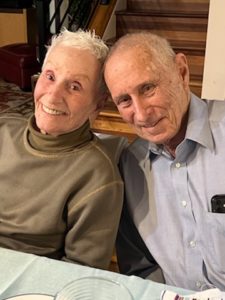
When Russell Robinson, CEO of the Jewish National Fund-USA, asked his friend and colleague Dr. Morton Mower, who died April 25 at 89, what he was most afraid of, he was surprised to hear the answer of “life.”
“I said, ‘Life? Not Death?’” replied Robinson, a resident of Livingston, N.J. “He said, ‘No, life. I fear that I, at some point, will waste a moment, and that moment I wasted I could have done something good for tomorrow. … I only got 24 hours, I gotta make sure I’m not wasting any time to do something good.’”
By all accounts, they were words that Mower, a doctor who invented life-saving medical devices and worked to help solve Israel’s water crisis, more than lived up to.
Mower was born in Baltimore. His family, a practicing Jewish household, later moved to Frederick, said Mower’s son, Mark Mower, a resident of Los Angeles. As Mort Mower’s father died while he was still young, it fell upon Mort Mower to step up and help take care of his two younger siblings.
Growing up in Frederick, Mort Mower experienced antisemitism, and he varied his route home from school day to day to avoid altercations. At one point, he learned that the Adam’s apple is the spot to aim for when punching a bully, Mark Mower said. Mark Mower believed these experiences may have helped cement his father’s view of Israel as a haven for the oppressed.
While still young, Mort Mower was diagnosed with polio in his leg, which helped spark his interest in medicine, Mark Mower said.
Mort Mower graduated from Johns Hopkins University and the University of Maryland Medical School. Some of the positions he later held included his role as professor of medicine at Johns Hopkins University School of Medicine and professor of physiology and biophysics at Howard University College of Medicine.
Some of Mower’s greatest successes can be found in his legacy as a medical inventor, as he was the co-inventor of the automatic implantable cardioverter defibrillator, Mark Mower said. For this particular invention, Mort Mower was inducted into the National Inventors Hall of Fame. Mark Mower described the invention as a miniaturized device that is implanted in the chests of patients with a history of sudden cardiac arrest. He credited his father’s device with saving hundreds of thousands, or perhaps even millions, of lives.
Mort Mower also invented cardiac resynchronization therapy, which Mark Mower described as a therapy for heart failure.
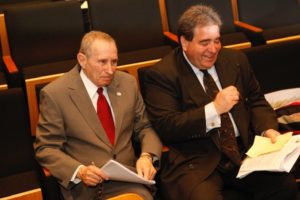
Mort Mower met Robinson in 1997, after Mower made a “mega gift” to JNF to help Israel deal with its ongoing water crisis, Robinson said. Upon meeting, Mower offered to help Robinson find a way through the crisis. When Robinson asked him what he knew of water and water technology, Mower replied, “I know nothing … but how much do you know, Russell?” When Robinson said he knew about as much, Mower said, “Then let’s learn together.”
After conducting a great deal of research on the matter, Mower helped determine that recycling water, including sewage water, was the path forward for Israel, as opposed to more “sexy” options like desalinization, Robinson said. Today, Israel reuses 90% of its water, which Robinson credited in part to Mower, as well as Ronald Lauder and others.
“Mort Mower died as one of the world-renowned experts in recycled water and water issues and water technology,” Robinson said.
Mower’s love of the Jewish world was further demonstrated by the fact that he and his wife, Toby Mower, helped found Moses Montefiore Anshe Emunah Congregation, said Mark Mower.
In mid-March, Mort Mower was diagnosed with advanced and aggressive forms of lung, liver and bone cancer, Mark Mower said. Just a few months before his death, Mower was pushing to start on projects related to the Dead Sea and a canal that could provide water for Palestinians, Jordanians and Israelis, Robinson added, while Mark Mower said his father was working just a few days before his death.
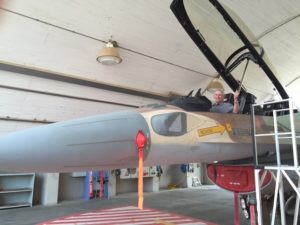
“That was Mort Mower,” Robinson said. “Nothing was too small that had to be cured.”
“He’s a real, humble Renaissance man,” Mark Mower said. “He never touted his accomplishments. He was nose to the grindstone, didn’t want to waste a minute of life, so his mind was always moving, tinkering and considering new therapies for the greater good.”
Mark Mower also remembered his father as placing great value on education and philanthropy. Mort Mower also had a dry sense of humor and nourished his son’s sense of entrepreneurship, Mark Mower said.
Mark Mower may have summed up his father’s broad expertise and life by saying, “Lo and behold, anything he set his mind to, he became an expert at.”
Mower is survived by his wife Toby; son Mark; daughter Robin; brother Bernard; sister Susan; daughter-in-law Kathleen; and grandchildren Mason, Luca and Zeke.



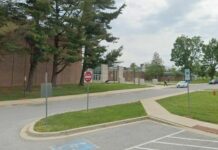
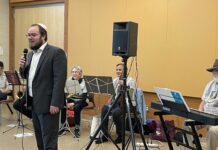
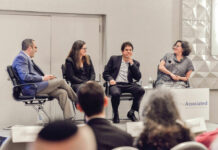


Wonderful write-up! Quite informative and nicely published. You protected the topic in good detail and offered superb illustrations to again up your details. This article will be a fantastic resource for those searching to learn more with regard to the topic. Many thanks for The nice perform!